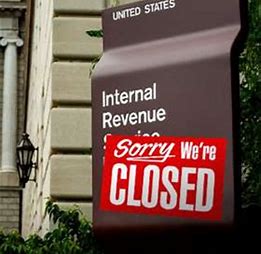The IRS has updated its Practice Unit on the reasonable cause defense to certain penalties. This Practice Unit provides auditors with information on how to determine whether a taxpayer has a reasonable cause defense to a proposed penalty.
Certain penalties are not imposed if the taxpayer can prove “reasonable cause” for the return position giving rise to the penalty (“reasonable cause defense”). Penalties that have a reasonable cause defense include:
-
Most accuracy related penalties under Code Sec. 6662, and the civil fraud penalty under Code Sec. 6663. (Code Sec. 6664(c))
-
The Code Sec. 6662A reportable transaction understatement penalty (when the transaction is adequately disclosed). (Code Sec. 6664(d))
-
The penalty for erroneous claims for refund or credit. (Code Sec. 6676(a))
-
Failure to file and/or failure to pay under Code Sec. 6651. (Code Sec. 6651(a)(1))
-
Understatement of taxpayer's liability by return preparer under Code Sec. 6694. (Code Sec. 6694(a)(3))
In some cases, to take advantage of the reasonable cause defense, the taxpayer must also show that they acted in good faith or that their failure to comply was not due to willful neglect.
Whether the taxpayer has a reasonable cause defense to a penalty depends on which penalty the IRS seeks to impose. However, in general, reasonable cause depends on all the facts and circumstances.
According to the Practice Unit, an auditor should determine whether the taxpayer acted with reasonable cause on a case-by-case basis. The most significant of the facts and circumstances the auditor must consider is the taxpayer’s effort to report their proper tax liability.
- Example 1. On their return, a taxpayer reports amounts from an erroneous information return but does not know the amounts are incorrect. This type of error may indicate that the taxpayer has reasonable cause for reporting the incorrect amounts on their return. However, there must be additional facts suggesting the taxpayer made a reasonable effort to ascertain the correct amounts.
- Example 2. On their return, the taxpayer makes an isolated computation or transposition error. This type of error may indicate the taxpayer’s good faith effort to report their proper tax liability.
Other factors for an auditor to consider are the taxpayer’s experience, knowledge, education, and whether the taxpayer relied on the advice of a tax advisor.
When the auditor considers a taxpayer’s reliance on the advice of a tax advisor, the auditor should consider whether:
- The taxpayer's reliance on the advice of a tax advisor was objectively reasonable.
- The taxpayer provided their tax advisor with all the necessary information to evaluate the tax matter.
- The tax advisor had enough knowledge and expertise related to the tax matter to provide advice.
- The taxpayer "actually relied" on their tax advisor's advice.
- The taxpayer exercised the care that a reasonably prudent person would have used under the circumstances when relying on the tax advisor's advice.
If The Penalty Relates To The Late Filing Of A Tax Return
Or Payment Of A Tax Obligation.
The taxpayer is responsible for timely filing and payment, and this responsibility cannot be delegated. However, an auditor should consider factors that might excuse late filing or late payment such as whether the taxpayer's records were unavailable (for example, due to disaster or casualty) or whether there was a law change of which the taxpayer could not reasonably have been expected to be aware.
In addition, a taxpayer's forgetfulness is not generally a basis for reasonable cause; however, it could be if there is a medical reason for such forgetfulness (e.g., the taxpayer has dementia).
www.TaxAid.com or www.OVDPLaw.com
or Toll Free at 888 8TAXAID (888-882-9243)
Read more at: Tax Times blog














